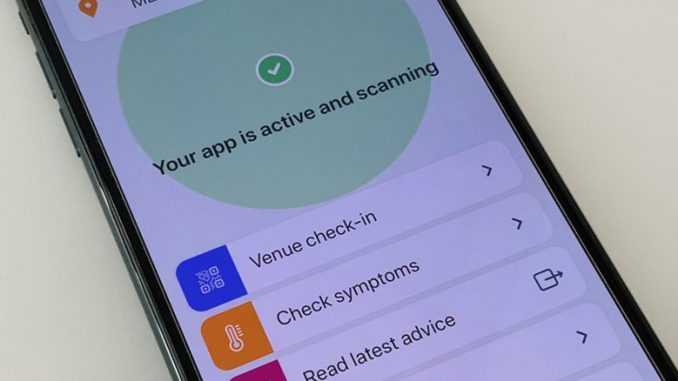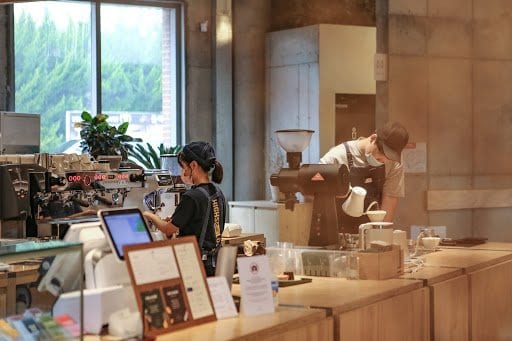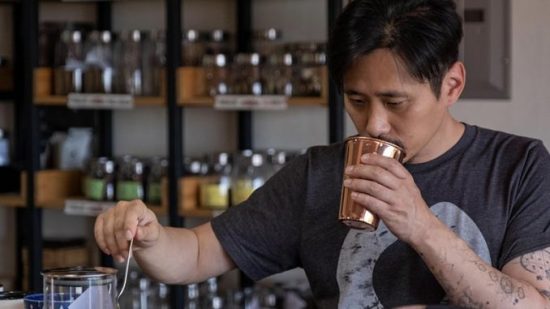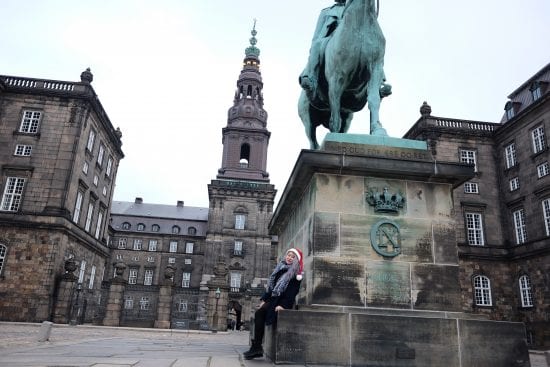
We learn how the country’s overall positive reception to contact tracing has differed from Hong Kong’s.
BY TIGGER CHATURABUL
SPECIAL TO BARISTA MAGAZINE ONLINE
Cover photo by Cameron Anderson for Unsplash
From the editor: Yesterday, we explored the ways in which contact tracing in Hong Kong has been met with mixed approval by its citizens, mostly for concerns regarding data privacy. Today, we witness how South Korea has accepted this tactic in order to prevent the economy from shutting down.
In South Korea, the response to contact tracing is vastly different from in Hong Kong. In July 2020, the government mandated a similar QR-code system in most businesses, but the code is generated on a person’s phone, usually through one of the leading messaging apps like Naver or Kakao, and scanned into the system at a café or restaurant. South Korea’s virus control measures have been hailed as an overwhelming success due to their tactics in adapting to life with COVID-19 instead of trying to completely eradicate the virus, and the country’s ability to avoid total lockdown throughout the pandemic has helped prevent a steep downturn in the economy.

Containment in South Korea is swift. “As soon as the information about the confirmed person’s visit is revealed, the business is suspended and quarantined,” shares Geunha Park, co-founder and CEO of Fritz Coffee Company. “Not everyone in the venue is examined, but if a ‘close contact’ is confirmed through CCTV in the café, the subject is immediately tested and begins self-isolation. Usually, the confirmed result after the examination is delivered to the party the next day. Regardless of the result, the quarantine must be carried out for two weeks. After quarantine work, the café can resume business the next day.”
Fritz Coffee has been visited by a total of three confirmed cases, and from his experiences, Geunha is confident that South Korea’s virus control work is highly reliable, albeit not quite perfect. “In December, the government suspended dine-in operations for cafés, which caused tremendous damage with cafés firing baristas, taking unpaid leave, or completely stopping operations. At that time, there was no subsidy that cafés could receive from the government,” says Geunha. “But the quarantine system is at a very high level and not losing credibility due to its transparent and quick response.”
Bean Voyage co-founder Sunghee Tark (she/her), who’s usually based in Costa Rica, was in South Korea when quarantine and contact tracing were first introduced to the country. “It was already quite natural for everyone to scan the QR code everywhere you went, and I trust the government to not use the data for anything else but for the control of the outbreaks,” says Sunghee.
“Every district would send you alerts on your phone with the cases and where the COVID-19 patient went during the time that they were contagious,” she adds. “I know people were finding it quite cumbersome to provide their QR code in the beginning but eventually everyone, including the older generation, got used to providing their info. My understanding is that the general public viewed it as necessary to control the spread of the cases.”

Geunha agrees that the overall perception was positive. “This situation is not familiar in Korea, but it was not a difficult problem to accept. For certain issues—not all of them—Koreans sometimes think positively of decisions that value the interests of the community rather than the perspective of protecting personal information,” he says.
As the world continues to adapt to a constantly shifting new normal, coffee shop staff and their patrons must also make difficult decisions when it comes to personal protection on all fronts. While the success of contact tracing highly depends on the government executing it, transparency is key to building confidence and therefore willingness to participate in extra measures to keep everyone safe.

ABOUT THE AUTHOR
Tigger Chaturabul tried to be a barista for two years until she realized she was better suited behind the business than behind the bar. She now runs her own copywriting and design studio, Curious Typhoon Studio, that serves F&B and other small businesses in Hong Kong. Her free-range creative lifestyle allows her to spend all her time in coffee shops everywhere.

